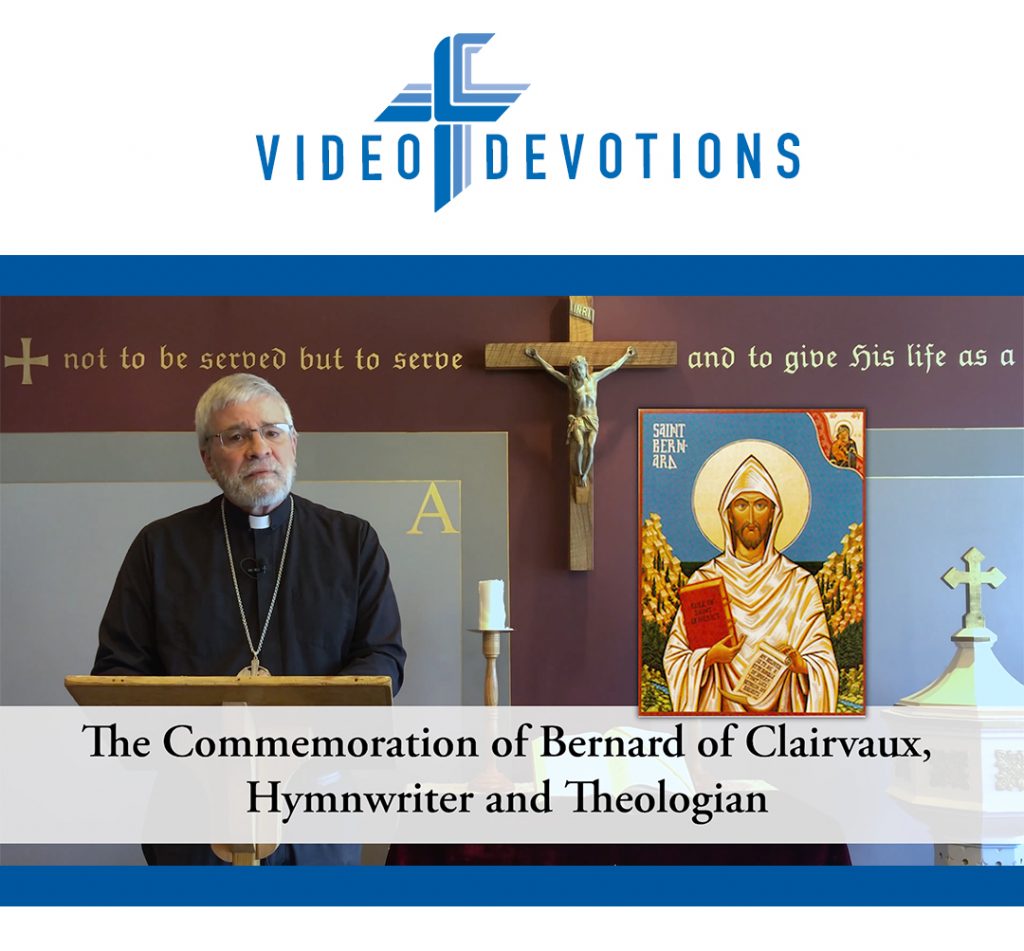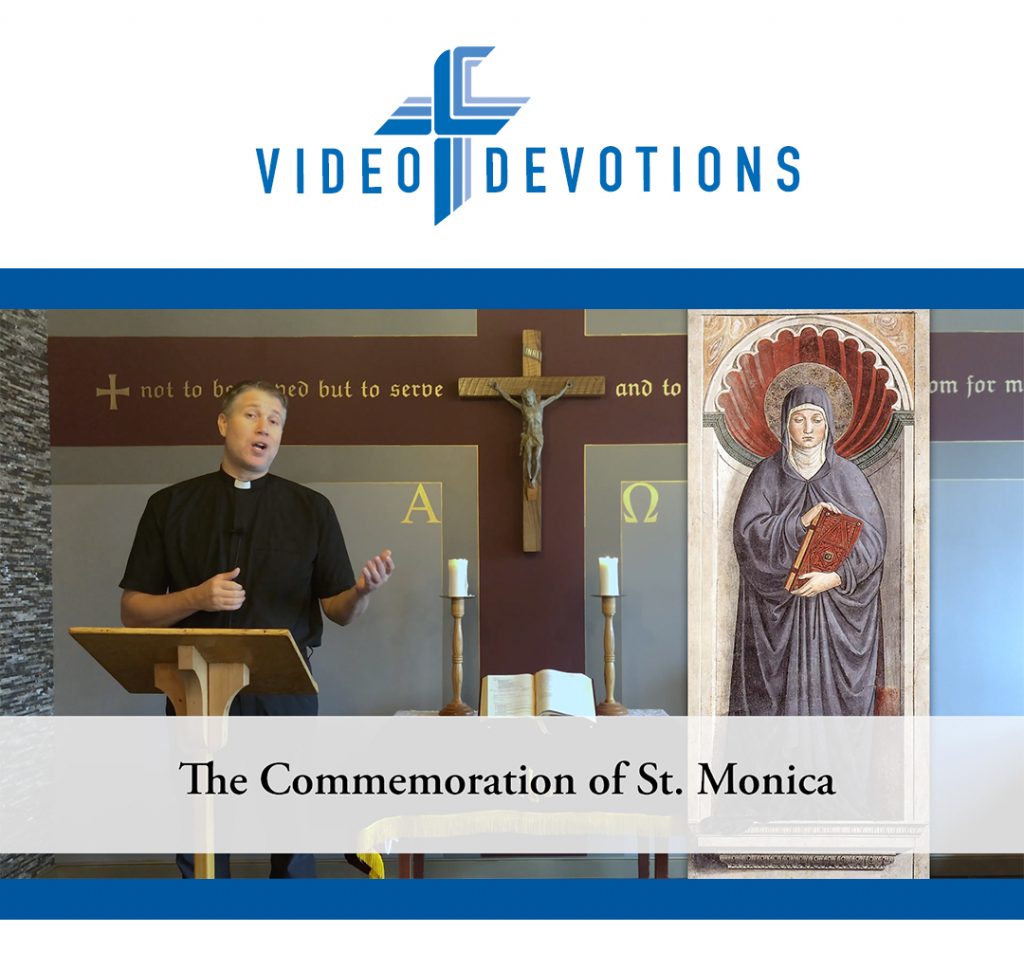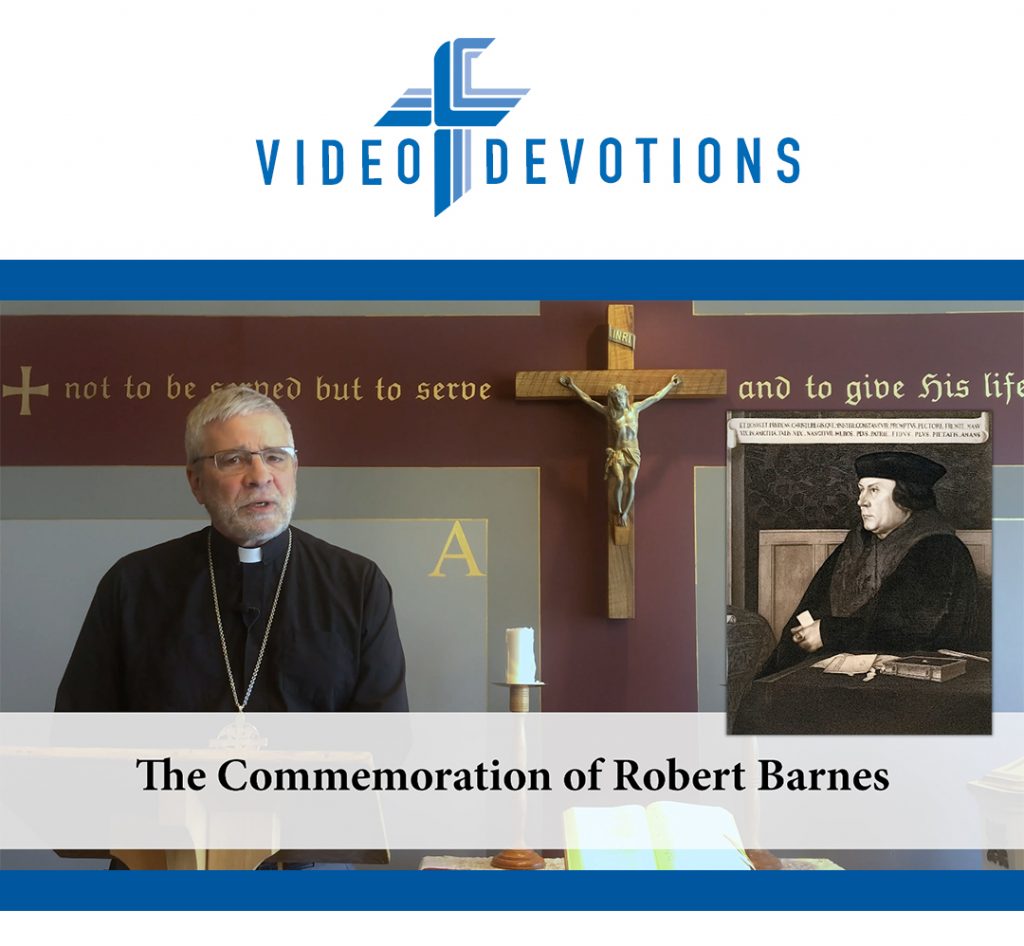Leaving the Light On
 by Timothy Teuscher
by Timothy Teuscher
“We’ll leave the light on for you.” That’s been Motel 6’s popular marketing slogan for nearly 35 years. The phrase also expresses well the reason why we observe the various festivals and commemorations on the liturgical calendar of the Lutheran Church (Lutheran Service Book lists 34 festivals and 81 commemorations).
When we remember those throughout history who lived by faith in the promises of God, we are following the example of Hebrews chapter 11, which lists the names of many Old Testament individuals who by faith “received their commendation” (Hebrews 11:1). The writer of Hebrews exhorts us with these words: “Therefore, since we are surrounded by so great a cloud of witnesses, let us also lay aside every weight, and sin which clings so closely, and let us run with endurance the race that is set before us” (Hebrews 12:1).
When we remember those throughout history who lived by faith in the promises of God, we are following the example of Hebrews chapter 11, which lists the names of many Old Testament individuals who by faith “received their commendation” (Hebrews 11:1).
It is for this reason that the Augsburg Confession states: “Our churches teach that the remembrance of the saints is to be commended in order that we may imitate their faith and good words according to our calling.” To put it another way, the saints of old call out to us through such commemorations, saying: “We’ll leave the light on for you.”
The various festivals or feasts on the liturgical calendar are reserved for those individuals whose lives on earth were so connected with the earthly life and ministry of Jesus that their stories are literally part of the Gospel itself. Along with the virgin Mary, John the Baptist, and a few others, the most obvious ones are the apostles and evangelists. The remembrance of these saints is normally observed with special distinction in the Divine Service, complete with appointed Scripture readings, appropriate hymns, and the celebration of the Lord’s Supper in which the Word who became flesh, our Lord Jesus Christ, draws close to us and gives Himself to us—much in the same way that He came and lived among the apostles and other disciples in the New Testament. When these festivals fall on a Sunday, it is especially fitting for congregations to mark these special days.
It is for this reason that the Augsburg Confession states: “Our churches teach that the remembrance of the saints is to be commended in order that we may imitate their faith and good words according to our calling.” To put it another way, the saints of old call out to us through such commemorations, saying: “We’ll leave the light on for you.”
 In addition to the festivals or feasts, the church calendar also includes commemorations of other individuals from the Old and New Testaments, as well as Christians throughout the annals of history. These commemorations are normally observed in daily devotions in the home, in schools, and in seminaries, in addition to an appropriate prayer in the Divine Service. These are days set aside to recognize those men and women who have gone before us in the faith and whom God used to preserve, strengthen, and extend His church. The dates for these commemorations are usually chosen to coincide with their heavenly birthday—that is, the day of their earthly death.
In addition to the festivals or feasts, the church calendar also includes commemorations of other individuals from the Old and New Testaments, as well as Christians throughout the annals of history. These commemorations are normally observed in daily devotions in the home, in schools, and in seminaries, in addition to an appropriate prayer in the Divine Service. These are days set aside to recognize those men and women who have gone before us in the faith and whom God used to preserve, strengthen, and extend His church. The dates for these commemorations are usually chosen to coincide with their heavenly birthday—that is, the day of their earthly death.
We are posting video recordings of worship services and devotions for these festivals and commemorations on our synod’s website as they become available. They are offered to members of our congregations for the purpose stated in the Apology of the Augsburg Confession concerning the remembrance of the saints—that we thank God for giving these faithful servants to His church, that our faith might be strengthened as we see His grace and mercy extended to those who have gone before us, and that they might serve as examples to us today of faithfulness and holy living.
It seems to me that such is good, right, and proper so to do, especially at the present time in which we are living: a time of defections from the Church, of false teachings and practices within the Church, and of attacks from without upon the Church and the Christian faith. Coupled with all this, of course, are the issues, concerns, and problems facing our pastors and congregations as a result of the COVID-19 pandemic, with no end in sight.
 But do you know what? The Church has experienced and faced all this in the past—whether it be persecution from the Roman government in the days of Cyprian in the third century, false teachings like Arianism during the time of Athanasius in the fourth century, the devastating effects of war and pestilence in the days of Gregory the Great in the sixth century, or the isolation of Lutheran immigrants and small pastor-less congregations scattered across North America in the days of Friedrich Wyneken in the nineteenth century. Our Lord Jesus preserved and sustained His church in the past through faithful servants like these; He will do so in our own day as well. For He has promised: “I will build My church, and the gates of hell shall not prevail against it” (Matthew 16:18).
But do you know what? The Church has experienced and faced all this in the past—whether it be persecution from the Roman government in the days of Cyprian in the third century, false teachings like Arianism during the time of Athanasius in the fourth century, the devastating effects of war and pestilence in the days of Gregory the Great in the sixth century, or the isolation of Lutheran immigrants and small pastor-less congregations scattered across North America in the days of Friedrich Wyneken in the nineteenth century. Our Lord Jesus preserved and sustained His church in the past through faithful servants like these; He will do so in our own day as well. For He has promised: “I will build My church, and the gates of hell shall not prevail against it” (Matthew 16:18).
“We’ll leave the light on for you.” So the saints of old call out to us. And they do so in order that we too might “run with endurance the race that is set before us” (Hebrews 12:1).
———————
Rev. Timothy Teuscher is President of Lutheran Church–Canada.




